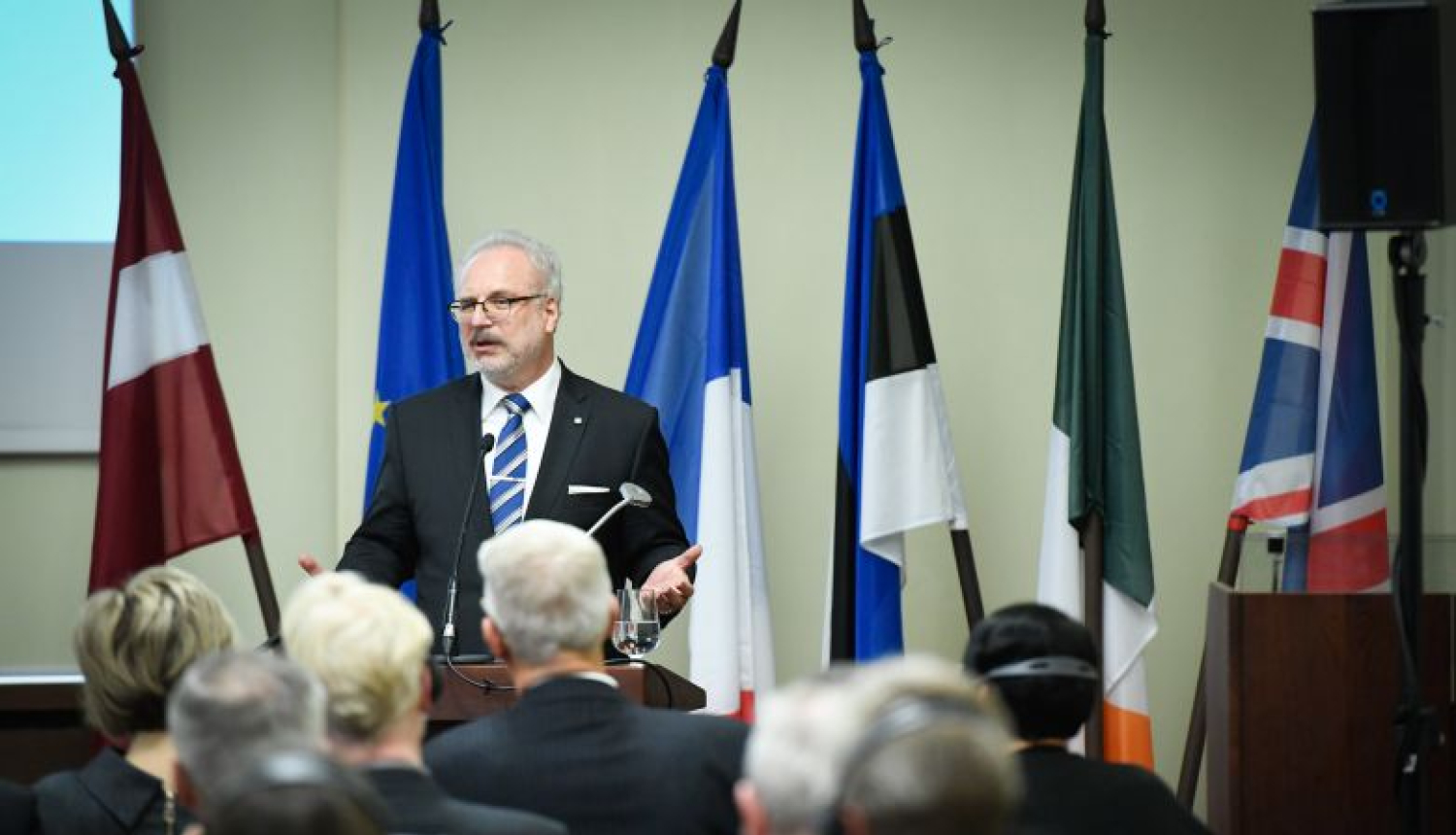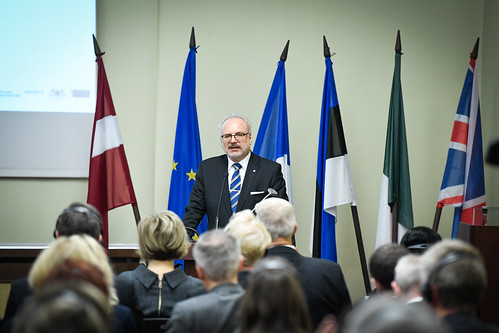Honourable President Zatlers,
Madam the Ambassador,
Dear ladies and gentlemen,
Today’s conference makes one contemplate, first, whether history can ever be complete? As we see, historical research can continue infinitely along two possible threads. First, there will always be new facts and new evidence to discover when researching past events. That is what we call factual research. Today’s conference is a vivid example of the fact that we are aware of allied, especially French, involvement in our War of Independence. However, as exhibition and conference will show, research on such involvement is not as deep and detailed as possible. Secondly, historical research is infinite because facts are constantly reinterpreted and with time new interpretations are added. It is a constant process of creating new understanding which makes history infinite. This conference is a small piece of a puzzle that we add as we try to comprehend how Latvia’s independence was achieved together with our allies, the French, through War of Independence.
Unlike the rest of Europe, where the Great War ended on 11 November 1918, Latvia and many other parts of Europe continued experiencing its effects. While the rest of Europe worked on a new order for Europe after the Great War, which was created at the end of 1920 and was finalised by the end of 1921, we still felt the effects of war. Official, legal and political implications of that will be discussed by one of today’s speakers after me.
Latvia was pulled into the Great War from the very first day that it broke out in 1914. For a long time, Latvia was divided by the front line, which formed along the River Daugava, into two parts. Latvia was involved in this war until the very end of it in 1920 when this devastating conflict for Europe actually ended. In terms of the effects of population loss, Latvia is the European country that was most affected by losing large share of its population. Latvia’s population before the war reached 2.6 million, but by 1921 it declined to 1.5 million because of Latvia being pulled into this war right at the beginning and all the way to the end. We were, on one hand, a passive country, our people became the victims of the war, and, on the other hand, in 1918 Latvia engaged in military conflict as a newly formed state that wished to rid its territory of foreign powers. We used to call this period freedom fights, now we tend to call it the War of Independence.
War of Independence was actively supported by our allies: France, the United Kingdom, United States of America. Allies were interested in preventing the return of German imperialism through separate German forces that tried to use Baltic region as a platform for achieving political objectives towards Berlin and Saint-Petersburg. Therefore, after making victories on the Western front, allies were forced to intervene in our region to make sure the victory in West is not lost because of defeat on the Eastern front. This, of course, meant supporting our newly founded, or not yet fully formed, state.
When in 1919 the Head of the French Military Mission Emmanuel du Parquet arrived in Riga, we had two governments. He approached both governments, and when Latvian Provisional Government with Kārlis Ulmanis took hold of the state, he, of course, continued to cooperate with Ulmanis’ government. We know that French helped to take back Riga, and there will be an interesting presentation on that after my speech as well. I should also mention a lesser known fact that French tanks were also used by the Polish army to take back Latgale.
Let me reiterate that France played major role in the War of Independence, and this exhibition and conference will give us another piece of history which we can add to the puzzle that will reveal the full picture of what War of Independence meant. I am, therefore, very grateful to the organisers, the Embassy of France, Latvian War Museum and all the speakers for giving us new facts and analysis that will help us understand the history of our state and the whole Europe more clearly. Thank you!





